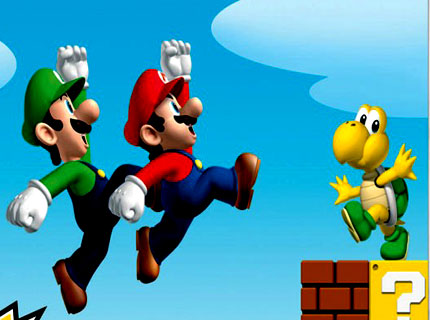 Next time you’re tempted to lecture your kids about wasting too much time on video games, first check out which games they’re playing – it turns out they may actually be learning important life lessons.
Next time you’re tempted to lecture your kids about wasting too much time on video games, first check out which games they’re playing – it turns out they may actually be learning important life lessons.
Much research has been done on whether online games and other interactive educational tools can teach people how to make better decisions regarding personal finances, including an exciting new study called “Improving American’s Financial Literacy: Educational Tools at Work,” by Lisa A. Donnini, PhD, KayAnn Miller and Kitch Walker.
The authors compared the credit performance of thousands of college students who opened Wells Fargo credit card accounts in two categories: Those who completed an online financial tutorial on the wise use of credit prior to being issued their card; and those who did not. The tutorial was based on content from Practical Money Skills for Life, a free financial literacy program run by Visa Inc.
Wells Fargo analyzed each account’s performance more than a year after they were opened and found that as a whole, cardholders who took the tutorial demonstrated dramatically better credit behavior than those who did not. The results were eye-opening. Those who completed the tutorial:
- Had revolving monthly balances that were 20 percent lower than those who did not.
- Were 44 percent less likely to be 60 days delinquent on payments.
- Experienced FICO credit score increases that were 240 percent better.
- Were 23 percent less likely to have late fees.
- Were 51 percent less likely to file for bankruptcy.
These data provide tangible evidence of what many financial literacy practitioners have long believed: that financial education intervention given at the right teachable moment – in this case, immediately prior to opening a credit account – works.
So what has this to do with video games? According to Dr. Donnini, “Children have always learned through play and today, digital media has resulted in increasingly more sophisticated games that can engage youth while at the same time encouraging learning.”
In fact, many would suggest that the key components of good video games, including immediate feedback, rewards, motivation and goal-setting, may be a better fit for the high-technology, global world in which today’s kids live than the more traditional types of learning often found in the classroom.
Some of the better educational video games I’ve seen include several found at Visa’s Practical Money Skills for Life (www.practicalmoneyskills.com/games):
- Financial Soccer, a free, fast-paced, multilingual video game jointly developed with the Federation Internationale de Football Association (FIFA), which incorporates soccer’s structure and rules to teach children and young adults the knowledge and tools they’ll need to establish and maintain sound financial habits over a lifetime.
- Financial Football, a similar game jointly developed with the National Football League.
- Money Metropolis, where kids ages 7 to 12 navigate a multi-dimensional world, making life decisions that will affect whether their virtual bank account shrinks or grows.
- Peter Pig’s Money Counter, where kids ages 4 to7 can practice sorting and counting coins with the help of wise Peter Pig.
Other good games include: Bad Credit Hotel (www.controlyourcredit.gov), Planet Orange (www.orangekids.com), You Are Here (www.ftc.gov/youarehere), and Hands on Banking (www.handsonbanking.org).
Bottom line: Although nothing beats playing in fresh air, there are plenty of electronic games that can teach your kids the skills they’ll need to manage their personal finances.
Jason Alderman directs Visa’s financial education programs. To Follow Jason Alderman on Twitter: www.twitter.com/PracticalMoney.


